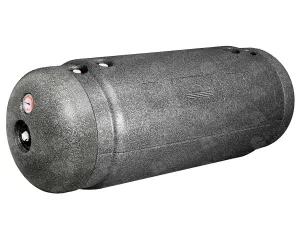140 liters indirect heating boilers
Indirect heating boilers with a capacity of 140 liters are essential appliances for ensuring a steady supply of hot water in residential and commercial settings. These boilers, known for their reliability and efficiency, play a crucial role in modern heating systems. Let's delve into the various aspects and advantages of these boilers.
First and foremost, the primary function of indirect heating boilers is to heat water using an external heat source such as a central heating system or a renewable energy source like solar panels. The indirect method of heating water ensures energy efficiency and reduces heat loss, making it a cost-effective solution for heating large volumes of water.
One of the key benefits of 140-liter indirect heating boilers is their ample capacity, which is suitable for meeting the hot water demands of medium to large households or commercial establishments. This generous capacity ensures a consistent supply of hot water, even during peak usage times, providing convenience and comfort to users.
Moreover, indirect heating boilers offer enhanced safety features compared to traditional direct heating systems. By utilizing a heat exchanger to transfer heat from the primary heating source to the water, these boilers minimize the risk of scalding and overheating, making them a safer option, especially in households with children or elderly individuals.
Installation and integration of 140-liter indirect heating boilers into existing heating systems are relatively straightforward, thanks to their compatibility with standard plumbing configurations. Whether retrofitting an old heating system or installing a new one, these boilers can be seamlessly integrated, reducing installation time and costs.
Another advantage of indirect heating boilers is their versatility in terms of energy sources. While they commonly rely on gas or oil-fired central heating systems, they can also be integrated with renewable energy sources such as solar thermal collectors or heat pumps, further reducing their environmental impact and dependence on fossil fuels.
Furthermore, indirect heating boilers require minimal maintenance compared to direct heating systems, thanks to their simple yet robust design. Routine inspections and occasional servicing are usually sufficient to ensure optimal performance and longevity, saving both time and money for homeowners or building managers.
In addition to their practical benefits, indirect heating boilers contribute to environmental sustainability by promoting energy efficiency and reducing greenhouse gas emissions. By utilizing renewable energy sources and minimizing heat loss, these boilers help mitigate the environmental impact of traditional heating systems, aligning with global efforts to combat climate change.
In conclusion, 140-liter indirect heating boilers are indispensable components of modern heating systems, offering reliability, efficiency, and safety. Their ample capacity, ease of installation, and compatibility with various energy sources make them a preferred choice for residential and commercial applications alike. Whether providing hot water for domestic use or supporting heating systems in commercial buildings, these boilers play a vital role in ensuring comfort, convenience, and sustainability.








